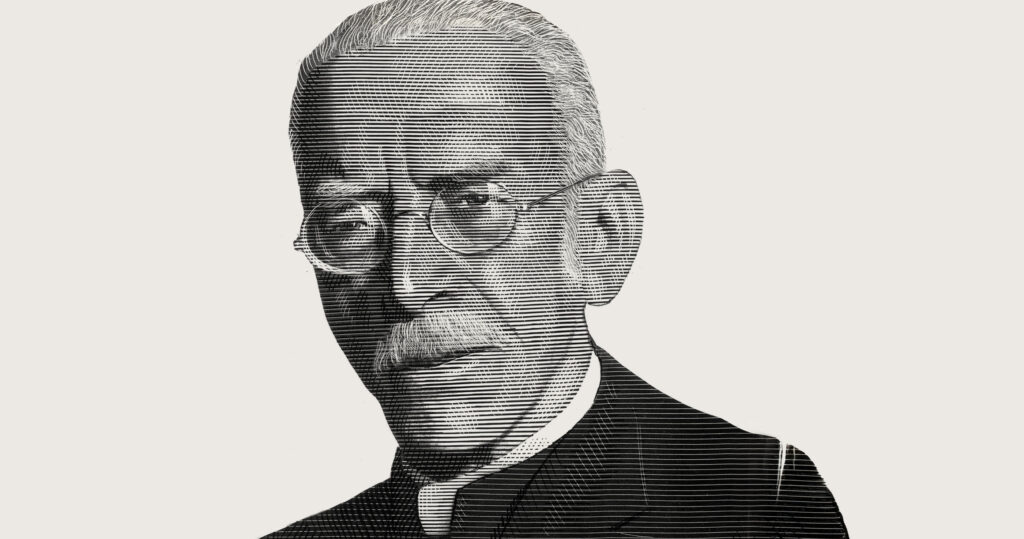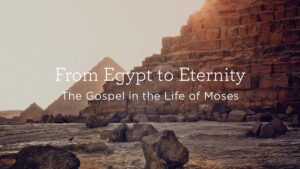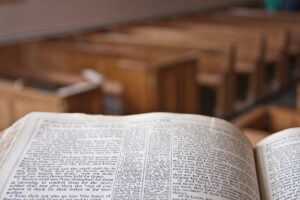Why You Ought to Know Francis Grimké

Legislation and Gospel
Francis Grimké, born enslaved on a plantation in South Carolina in 1850, was one of the vital outstanding pastor-theologians of American historical past. He ministered from 1878–1928, primarily within the nation’s capital, and his story is price figuring out.
Although he endured a troublesome childhood stuffed with injustice by the hands of his enslavers, he had a outstanding mom, Nancy Weston, who made nice sacrifices for his schooling and non secular progress.1 Following the Civil Warfare, he attended Lincoln College, the place he graduated as Valedictorian. After briefly contemplating a profession in legislation and finding out at Howard College, the non secular awakening he started to expertise as a school scholar finally led him to Princeton Theological Seminary. There, his theological aptitude earned the respect of each Charles Hodge and Benjamin B. Warfield.2 Upon commencement from seminary, he acquired a name in 1878 to Fifteenth Road Presbyterian Church in Washington, DC, the place he served faithfully for the higher a part of fifty years. That very same 12 months, he additionally married Charlotte Forten of Philadelphia. Her household was well-known for his or her social activism, and her life is one other outstanding story additionally price figuring out.
Maybe one of the vital notable options of Francis Grimké’s ministry pertains to his means to tell apart between the legislation of God and the gospel of God with out separating them. He expressed his views on this matter powerfully in a letter he wrote to the alumni of Princeton Theological, summarizing his a few years of ministry:
Throughout these forty years two issues I’ve tried to do with all my would possibly: (1) To evangelise the gospel of the grace of God, to get males to see their want of a savior, and to just accept of Jesus Christ as the way in which, the reality, the life. If I needed to dwell my life over once more I’d nonetheless select the ministry, I couldn’t be glad in every other calling. (2) I’ve sought with all my would possibly to battle race prejudice, as a result of I consider it’s totally un-Christian, and that it’s doing nearly greater than the rest to curse our personal land and nation and the world at giant. Christianity, in its teachings, and within the spirit of its founder, stands for the brotherhood of man, calls us to do by others as we might be performed by, to like our neighbor as ourselves.3
In these memorable phrases, Grimké concurrently distinguished and affirmed the significance of preaching the gospel and preventing race prejudice. He didn’t deal with them as in the event that they had been the identical factor. Neither did he separate them. This holistic but differentiated method to Christian life and ministry is price figuring out.
Born enslaved, Grimké devoted his life to preaching the gospel and confronting the injustice of his time. This e-book presents Grimké’s imaginative and prescient of the Christian life, serving to readers deal with vital points inside the church in the present day.
Civil Rights
Grimké’s dedication to preventing race prejudice led him to a distinguished position within the early civil rights motion. He was near the well-known abolitionist Frederick Douglass, who often attended Fifteenth Road Presbyterian and requested Grimké to officiate his marriage in 18844. In 1893, he co-founded the Afro-American Council to help Black clergy who had been excluded from the networks that got here extra naturally to White ministers within the denomination. Alongside Booker T. Washington and W. E. B. Du Bois, he was closely concerned with the Hampton Institute, preaching at its inaugural convention and serving as chair of its Committee on Faith and Ethics from 1898 to 1902. He additionally served as treasurer and on the manager board of the American Negro Academy, based by Alexander Crummell to advertise African American scholarship and advance the fields of literature, science, artwork, and better schooling. Grimké’s lengthy tenure on the Board of Trustees at Howard College led to a proposal to turn out to be its president—a task he declined in favor of his pastoral duties.5
Most notably, Grimké performed a key position within the Niagara Motion and the founding of the NAACP. He, together with Ida B. Wells-Barnett and Du Bois, was one in every of six African American signers of the decision for the Emancipation Convention, which led to the NAACP’s creation.6 Though Grimké selected to not take a management position within the group, he organized for his brother, Archibald, to serve on the founding committee and later as a vice chairman.7 All through his life, Francis Grimké persistently seized alternatives to advocate for civil rights and communicate out prophetically. The important position of theologically conservative Black ministers like Francis Grimké within the early civil rights motion is underappreciated in each tutorial scholarship and well-liked histories. This can be a story price figuring out.8
Whereas it could be stunning to some, Francis Grimké’s vital position within the early civil rights motion didn’t forestall him from concurrently championing the “non secular nature” of the church’s mission. He often taught on this subject, and he additionally practiced what he preached. The title of one in every of his most generally circulated and commented upon sermons was primarily based upon the Nice Fee of Matthew 28 and entitled “Christ’s Program for the Saving the World.” In that sermon he declared that Jesus Christ would construct his kingdom by calling individuals to repentance for his or her sins and religion in him because the Son of God and savior of sinners. Grimké acknowledged that some individuals assume a ministry centered upon preaching this gospel message is “foolishness” and needs to be changed by different “schemes.” Nonetheless, he boldly declared that salvation doesn’t come by private obedience, social enchancment, or “secular” information, nevertheless helpful it may be. Salvation can solely come by preaching Christ from each the Previous and New Testomony Scriptures and calling individuals to private religion.9
Trustworthy Ministry
Grimké’s agency dedication to the non secular nature of the church’s ministry and his theological commitments to conventional Christian views on the character of Scripture and the individual and work of Christ led him to make cautious theological distinctions and considerate selections in his private ministry. He distinguished between preaching the gospel and preventing race prejudice, however he devoted his life to each. He distinguished between sacred and secular information, vocations, and points, however he didn’t place them in opposition. He extremely valued particular person, company, and social points of Christian life and piety.
Alongside these traces, he noticed the significance of Christian work within the church, in society, and within the state, however he didn’t confuse or collapse the completely different spheres. He additionally distinguished between his private and public life and his roles as a Christian and as a Christian minister. He didn’t place these roles in competitors, however he did distinguish them. Virtually talking, this meant that he inspired his brother, an legal professional, to serve formally with the NAACP. As a pastor, he believed his major position was in instructing the phrase of God. His preaching often touched on ethical and social points, however he additionally warned Christian ministers to not interact in partisan politics by endorsing particular candidates or insurance policies.10 These are difficult topics, and Grimké’s passionate, considerate, cautious instance is assumed upsetting and value figuring out.
Francis Grimké’s fifty years of devoted ministry introduced hope and lightweight throughout one of many darkest durations of American historical past. The post-Reconstruction years of lynching, Jim Crow, race riots, makes an attempt to make interracial marriage unlawful, and numerous different ethical and cultural failures left a toll on the nation, and too usually Christians not solely didn’t battle such ethical tragedies however they perpetuated and condoned them.
Grimké was sincere about these realities, and he often expressed concern concerning the ethical trajectory of the nation. But he by no means gave up hope. His hope, nevertheless, was not positioned on any expertise and even expectation of ethical progress. Grimké continued his efforts not as a result of he anticipated instant social progress however as a result of he believed that God is final. Whereas he noticed no grounds for naive optimism, untimely claims in regards to the finish of racism or different ethical evils, or simplistic assertions that the gospel alone might resolve all social points within the current age, he additionally noticed no purpose for pessimism, despair, or dismissing the facility of God working by the gospel. As he wrote, there may be “no purpose to turn out to be discouraged, although at occasions issues might look fairly darkish.” As an alternative, “we’re hopeful, and can ever be” as a result of “Jesus Christ has set his kingdom up on this planet,” and the gates of hell won’t prevail towards it.11 He was sincere and hopeful on the identical time, and his story is price figuring out.
Regardless of his profound influence, Grimké is commonly missed in discussions of American non secular and civil rights historical past. But he was a distinguished chief in each the church and the early civil rights motion for over fifty years. The neglect of his legacy is noteworthy, particularly contemplating his influential position as a pastor and his important contributions to the civil rights motion. Grimké’s life highlights the necessity for a extra inclusive recounting of American church historical past—one which acknowledges the essential position of Black non secular leaders in shaping the nation’s non secular and social cloth. His writings and activism provide invaluable insights into the intersection of religion, race, and justice. His story is price figuring out.
Notes:
- Archibald H. Grimké, “A Madonna of the South,” The Southern Workman 29, no. 7 (1900): 392.
- James McCosh to unnamed addressee, October 18, 1879, in The Works of Francis J. Grimké, ed. Carter G. Woodson, 4 vols. (Washington, DC: Related Publishers, 1942), 1:x; Ethelbert D. Warfield to Francis J. Grimké, December 28, 1922, in Works, 4:357.
- Grimké to the category of 1878 of Princeton Theological Seminary, April 27, 1918, in Works, 4:215.
- Francis J. Grimké, “The Second Marriage of Frederick Douglass,” Journal of Negro Historical past 19, no. 3 (1934): 324-329.
- Henry Justin Ferry, “Francis James Grimké: Portrait of a Black Puritan” (PhD diss., Yale College, 1970), 195, 204, 207, 214-215, 267.
- Drew Martin, Grimké on the Christian Life: Christian Vitality for the Church and World (Wheaton, IL: Crossway, 2025), chapter 10.
- Dickson D. Bruce, Archibald Grimké: Portrait of a Black Unbiased (Baton Rouge: Louisiana State College Press, 1993), 104–105; Mark Perry, Carry Up Thy Voice: The Grimké Household’s Journey from Slaveholders to Civil Rights Leaders (New York: Viking, 2001), 332–333.
- Daniel R. Naked, Black Fundamentalists: Conservative Christianity and Racial Id within the Segregation Period (New York: New York College Press, 2021); Mary Beth Swetnam Mathews, African American Evangelicals and Fundamentalism between the Wars (Tuscaloosa: College of Alabama Press, 2017).
- Francis J. Grimké, “Christ’s Program for the Saving of the World” (1936), field 40-6, folder 309, Francis J. Grimké Papers, Howard College Library, 1-5. See additionally Francis J. Grimké, “The Nature and Mission of the Christian Church” (ca. 1889), field 40-8, folder 415, Francis J. Grimké Papers, Howard College Library.
- Grimké, Works, 3:292–95.
- Grimké, Works, 3:330–31.
Drew Martin is the creator of Grimké on the Christian Life: Christian Vitality for the Church and World.
Associated Articles
Justice Denied Is Love Denied
You might have heard it stated that justice delayed is justice denied. However I inform you that justice denied is love denied.
An Antislavery Message from 1776 by the Nation’s First Black Ordained Minister
It’s evident, by ocular demonstration, that man by his depravity has procured many corrupt habits which can be detrimental to society.
Podcast: Race, Ethnicity, and the Bible (Steven Bryan)
Steven Bryan talks about how Christians ought to method the varied “collective identities” that bind—and divide—us in our world in the present day.
Audiobook Preview: A Sermon from the First Ordained Black Preacher in America (Lemuel Haynes)
We’re happy to supply a particular preview of the brand new e-book, Chosen Sermons, that includes vital but hardly ever revealed sermons from black Puritan minister Lemuel Haynes.







